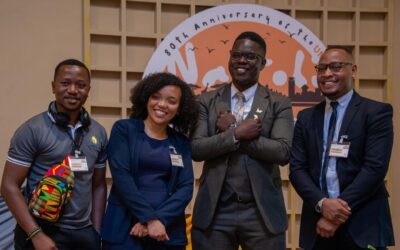- Five hundred prisoners have benefited from the project that has re-opened 300 court cases. These are prisoners who would otherwise still be awaiting trial and burdening the prison system.
- Three hundred law students took part in the project.
- Three hundred and fifty families of the prisoners we assisted by the students, health care workers and social workers.
- More than 200 citizens were redeemed through the project.
- More than 1000 prisoners have benefited from assistance through clothing drives, toy drives and toiletries.
- Articles, essays and awards
These are only some of the results (between 2001 and 2012) from the Legal Adoption of Arrested Citizens project and presented by Professor meeting organised by CeD Fraternity, Law and Social Change at Mariapolis Ginetta (January 25-27, 2013). This project seeks to face issues related to the penitentiary system in the State of Pernambuco, as they regard detainees – awaiting a court hearing – who should be assisted by Public Defense agencies.
 These are real life stories of legal abandonment, of people without defense, but especially in need of a hopeful and noticing glance. One of the project’s constant challenges is to draw students to this situation, especially since the “adopted” prisoners have committed or attempted to commit serious crimes. Taking brotherhood as a political and legal principle to be taken into consideration, how would the law worker then operate?
These are real life stories of legal abandonment, of people without defense, but especially in need of a hopeful and noticing glance. One of the project’s constant challenges is to draw students to this situation, especially since the “adopted” prisoners have committed or attempted to commit serious crimes. Taking brotherhood as a political and legal principle to be taken into consideration, how would the law worker then operate?
Starting from an academic look at the professional humanization of law, and encounter takes place: the prisoner finds the way of having his or her human rights respected, which are often being violated (with overcrowding, for example, where 1,400 people are living in a space that was meant for 98); future professionals develop their critical sense and become aware of their power to change society. But above all a fraternal dimension is established between student and detainee, one that permits both to experience citizenship in all it fullness as this fraternity is joined to freedom and equality.
 The Legal Adoption for Detainees Project began in 2001 as a result of an agreement between the ASCES School, the Tribunal Court of the State of Pernambuco and the State Secretary for Citizenship and Justice. Brotherhood was gradually considered to also be a pedagogical principle in the training of law students. The research group prepares students for accompanying a case before a jury with lessons on theory and technique. The methodology involves interviews with the detainees, their families and raises awareness in schools through the use of media.
The Legal Adoption for Detainees Project began in 2001 as a result of an agreement between the ASCES School, the Tribunal Court of the State of Pernambuco and the State Secretary for Citizenship and Justice. Brotherhood was gradually considered to also be a pedagogical principle in the training of law students. The research group prepares students for accompanying a case before a jury with lessons on theory and technique. The methodology involves interviews with the detainees, their families and raises awareness in schools through the use of media.
Moving from assistance of prison populations to a debate on fraternity, you begin to see how human rights and fraternity are closely linked because of basic democratic values, but especially for spreading a culture of peace. These eleven years of work demonstrate that it is possible to create a system for the protection of human, social and legal rights of detainees by working for the distribution of goods produced by social collaboration.





0 Comments